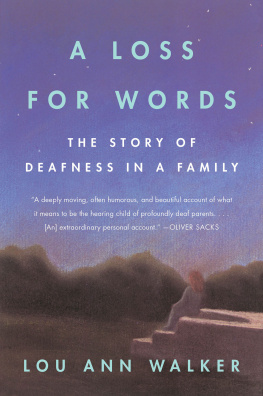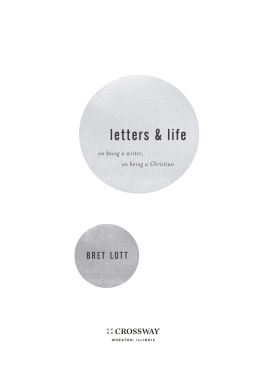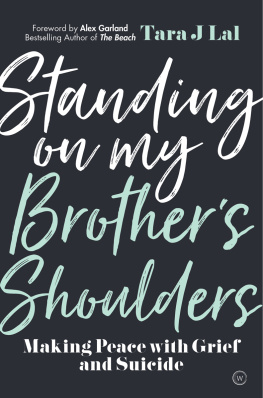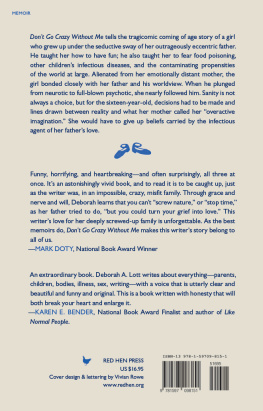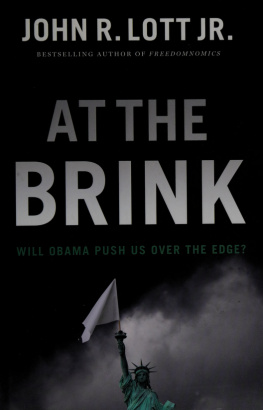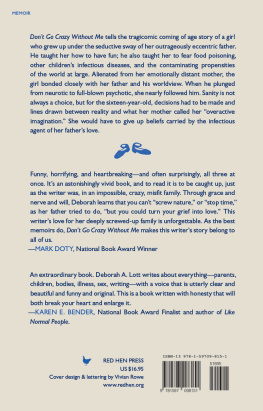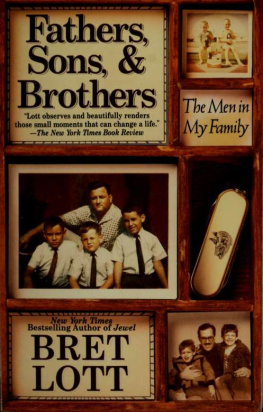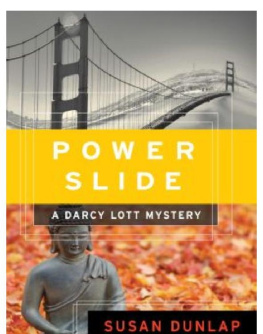PENGUIN MODERN CLASSICS
The Scent of Dried Roses
The Scent of Dried Roses touches a nerve no other English memoir has found; it does so in a way that seems not only affecting, but somehow important Sebastian Faulks
This is a moving, insightful, important book. It works as a personal story, as an analysis of the unknowable horrors of suicide and as a history of a changing Britain William Hague
In its slow and careful way, it unfolds a certain topography of melancholia, and the map Lott makes of his troubles mixes the intricate streets he has walked all his life with some pretty intricate places in his own mind and heart. We are left with a resounding lament for a small England The books recreation of a suburban world, its flashing-back and forward in real time, its compilation of whispers and roars and half-remembered truths, its reliance on the intimacies of interior monologue, are bound to make some people think of it as fiction Andrew OHagan
A moving, valuable account of a particular English family and their idea of England, as well as a sensitive record of the experience of a particular madness He tells the story of his family during the golden age of pre-and post-war certainty, and the subsequent quick changes of post-Suez England a very readable family history Tamsin Dean, Sunday Telegraph
[A] wonderful book essential reading for anyone concerned with depression and happiness Dorothy Rowe
His triumph is to take tragedy as his subject, and by exploring it, create a new myth of tentative hope. The reader is harrowed, intrigued and finally consoled
Michle Roberts,
The TimesLott sorts through the sepia-tinged photographs of his ancestry in search of the flaw in his family that leads him to depression and his mother to suicide distinguished by its observation, its honesty and its ambition Matthew de Abaitua, Harpers & Queen
The Doc Martens and Sta-Prests, the dance-halls and favourite bands are all carefully recorded. The strange low-spirited optimism of the immediate postwar years, all rubble and rationing, nationalization and utility furniture, little of which Lott can have experienced himself, is carefully sketched in These took some writing, and Lott can write Frank Kermode, London Review of Books
Breathtakingly powerful Christina Hardyment, Independent
ABOUT THE AUTHOR
Tim Lott was born in 1956 in Southall, west London, the son of a Notting Hill greengrocer. In 1976, he took a job on the pop magazine Sounds, and in 1980, he set up the first glossy colour pop magazine, Flexipop! He left the venture in 1983 to attend the London School of Economics and after graduating accepted the editorship of the listings magazine City Limits. He resigned after only two weeks, and a period of acute depressive illness followed, during which his parents nursed him back to health. Shortly afterwards his mother, Jean, committed suicide. The Scent of Dried Roses grew from an Esquire article on Jeans depression and suicide, and its publication in 1996 met with universal acclaim.
Lotts novels include White City Blue, winner of the 1999 Whitbread First Novel award; Rumours of a Hurricane (2002); The Love Secrets of Don Juan (2003); The Seymour Tapes (2005) and Fearless (2007), a childrens book.
Born in Yorkshire, Blake Morrison is a novelist, poet and critic, best known for two highly acclaimed memoirs, And When Did You Last See Your Father? and Things My Mother Never Told Me. He writes regularly for the Guardian, teaches Creative Writing at Goldsmiths College, and lives in south London with his family.
TIM LOTT
The Scent of Dried Roses
With an Introduction by Blake Morrison

PENGUIN BOOKS
PENGUIN CLASSICS
Published by the Penguin Group
Penguin Books Ltd, 80 Strand, London WC2R 0RL , England
Penguin Group (USA), Inc., 375 Hudson Street, New York, New York 10014, USA
Penguin Group (Canada), 90 Eglinton Avenue East, Suite 700, Toronto, Ontario, Canada M4P 2Y3
(a division of Pearson Penguin Canada Inc.)
Penguin Ireland, 25 St Stephens Green, Dublin 2, Ireland
(a division of Penguin Books Ltd)
Penguin Group (Australia), 250 Camberwell Road, Camberwell, Victoria 3124, Australia
(a division of Pearson Australia Group Pty Ltd)
Penguin Books India Pvt Ltd, 11 Community Centre, Panchsheel Park,
New Delhi 110 017, India
Penguin Group (NZ), 67 Apollo Drive, Rosedale, North Shore 0632, New Zealand
(a division of Pearson New Zealand Ltd)
Penguin Books (South Africa) (Pty) Ltd, 24 Sturdee Avenue, Rosebank, Johannesburg 2196, South Africa
Penguin Books Ltd, Registered Offices: 80 Strand, London WC2R 0RL , England
www.penguin.com
First published by Viking 1996
Published in Penguin Books 1997
Published with an introduction in Penguin Classics 2009
Copyright Tim Lott, 1996
Introduction copyright Blake Morrison, 2009
The moral right of the author and introducer has been asserted
All rights reserved
Without limiting the rights under copyright reserved above, no part of this publication may be reproduced, stored in or introduced into a retrieval system, or transmitted, in any form or by any means (electronic, mechanical photocopying, recording or otherwise), without the prior written permission of both the copyright owner and the above publisher of this book
A CIP catalogue record for this book is available from the British Library
ISBN: 978-0-14-192842-5
Introduction
In his short, classic memoir of depression, Darkness Visible, the American novelist William Styron describes his annoyance at those who see suicide as a mark of shame and weakness. The pain of severe depression is quite unimaginable to those who have not suffered it, he writes, and it kills in many instances because its anguish can no longer be borne. The prevention of many suicides will continue to be hindered until there is a general awareness of the nature of this pain. Part of the power of Tim Lotts book lies in its inside knowledge of anguish and pain. His mother killed herself because of them and a few months before her he came close to doing the same. His book is a double study, a search to understand his mother (whom he took for granted when alive, as sons often do), and a diagnosis of himself. Memoir isnt the right label, any more than it is for Styrons book. Constructed like a novel or quest myth, The Scent of Dried Roses blends biography and autobiography, with topography, social history and psychology added to the mix.
The first chapter unfolds with chilling clarity. The I of the son is present for the opening sentences, then disappears, allowing the all-seeing eye of an impersonal narrator to take over. Lotts parents become Jack and Jean, figures in a suburban landscape, going about their daily business, though the day in question will end like no other. There are hints of the impending tragedy: the neighbours who think Jean doesnt look well; the phone call she makes to cry off work; her sense of the house being empty, though every object in it is described in loving detail. But even when Jean resolves to get the job done, we cant be sure what kind of job she means. Its through Jack that we discover the worst:
Jack got home about five oclock. The house was nice and tidy as usual, with all the breakfast things cleared away. He shouted for Jean. There was no answer. Deciding that she was probably in the garden, he walked through the kitchen and into the small patch of green at the back. It ran slightly wild, the garden. It was deserted. There was an old shed at the end, full of junk, but there was nothing there either.
Next page


